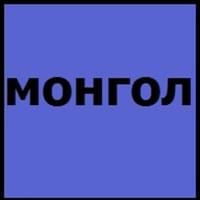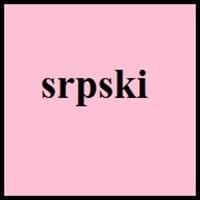Countries
China, Mongolia
Bosnia and Herzegovina, Kosovo, Serbia, Slovakia
National Language
China, Mongolia
Bosnia, Croatia, Montenegro, Serbia
Second Language
Not spoken in any of the countries
Not spoken in any of the countries
Speaking Continents
Asia
Europe
Minority Language
Not spoken in any of the countries
Croatia, Czech Republic, Hungary, Macedonia, Montenegro, Romania, Slovakia
Regulated By
Council for Language and Literature Work, State Language Council (Mongolia)
Board for Standardization of the Serbian Language
Interesting Facts
- Mongolian was first written using Phagspa script in late 13th century.
- There is no connection between Mongolian, Japanese and Korean, but still in terms of grammar and sentence structure they are very similar.
- Serbian language was derived from the Old Church Salvic, as the language was commonly spoken by most of Slavic people in the 9th Century.
- Serbian language is based on Stokavian dialect.
Similar To
Turkish Language
Bosnian and Croatian Languages
Derived From
Not Available
Not Available
Alphabets in
Mongolian-Alphabets.jpg#200
Serbian-Alphabets.jpg#200
Scripts
Mongolian alphabets: Traditional Mongolian script
Cyrillic, Latin
Writing Direction
Not Available
Left-To-Right, Horizontal
Hello
Сайн уу (Sain uu)
Здраво (Zdravo)
Thank You
та бүхэнд баярлалаа (ta bükhend bayarlalaa)
Хвала лепо (Hvala lepo)
How Are You?
Юу байна? (Yuu baina?)
Како си? (Kako si?)
Good Night
Сайн шөнийн (Sain shöniin)
Лаку ноћ (Laku noć)
Good Evening
Сайн үдэш (Sain üdesh)
Добро вече (Dobro veče)
Good Afternoon
Сайн Үдээс хойш (Sain Üdees khoish)
Добар дан (Dobar dan)
Good Morning
Өглөөний мэнд (Öglöönii mend)
Добро јутро (Dobro jutro)
Please
Хэрэв (Kherev)
Молим (Molim)
Sorry
Уучлаарай (Uuchlaarai)
Жао ми је (Žao mi je)
Bye
Баяртай (Bayartai)
Довиђења (Doviđenja)
I Love You
Би чамд хайртай (Bi chamd khairtai)
Волим те (Volim te)
Excuse Me
Өршөөгөөрэй (Örshöögöörei)
Извините (Izvinite)
Dialect 1
Khalkha Mongolian
Prizren-Timok
Where They Speak
Mongolia
Southeastern Serbia
Dialect 2
Ordos Mongolian
Smederevo–Vršac
Where They Speak
Mongolia
Serbia
How Many People Speak
Not Available
Dialect 3
Khorchin Mongolian
Torlakian
Where They Speak
Mongolia
Bulgaria, France, Kosovo, Macedonia, Romania, Serbia
How Many People Speak
Not Available
Speaking Population
Not Available
Not Available
Native Name
монгол (mongol) монгол хэл (mongol hêl)
српски (srpski) српски језик (srpski jezik)
Alternative Names
Not Available
Montenegrin
German Name
Mongolisch
Serbisch
Pronunciation
/mɔŋɢɔ̆ɮ xiɮ/
[sr̩̂pskiː]
Ethnicity
Not Available
Serbs
Origin
1224-1225
11th Century
Language Family
Mongolic family
Indo-European Family
Subgroup
Mongolian
Not Available
Branch
Not Available
Not Available
Early Forms
Middle Mongolian, Classical Mongolian, Mongolian
No early forms
Standard Forms
Khalkha, Southern Mongolian
Standard Serbian
Language Position
Not Available
Signed Forms
Mongolian Sign Language
Not Available
Scope
Macrolanguage
Individual
ISO 639 6
Not Available
Not Available
Glottocode
mong1331
serb1264
Linguasphere
part of 44-BAA-b
53-AAA-g
Language Type
Living
Living
Language Linguistic Typology
Subject-Object-Verb
Subject-Verb-Object
Language Morphological Typology
Not Available
Not Available
Mongolian and Serbian Greetings
People around the world use different languages to interact with each other. Even if we cannot communicate fluently in any language, it will always be beneficial to know about some of the common greetings or phrases from that language. This is where Mongolian and Serbian greetings helps you to understand basic phrases in Mongolian and Serbian language. Mongolian word for "Hello" is Сайн уу (Sain uu) or Serbian word for "Thank You" is Хвала лепо (Hvala lepo). Find more of such common Mongolian Greetings and Serbian Greetings. These greetings will help you to be more confident when conversing with natives that speak these languages.
Mongolian vs Serbian Difficulty
The Mongolian vs Serbian difficulty level basically depends on the number of Mongolian Alphabets and Serbian Alphabets. Also the number of vowels and consonants in the language plays an important role in deciding the difficulty level of that language. The important points to be considered when we compare Mongolian and Serbian are the origin, speaking countries, language family, different greetings, speaking population of these languages. Want to know in Mongolian and Serbian, which language is harder to learn? Time required to learn Mongolian is 44 weeks while to learn Serbian time required is 44 weeks.





